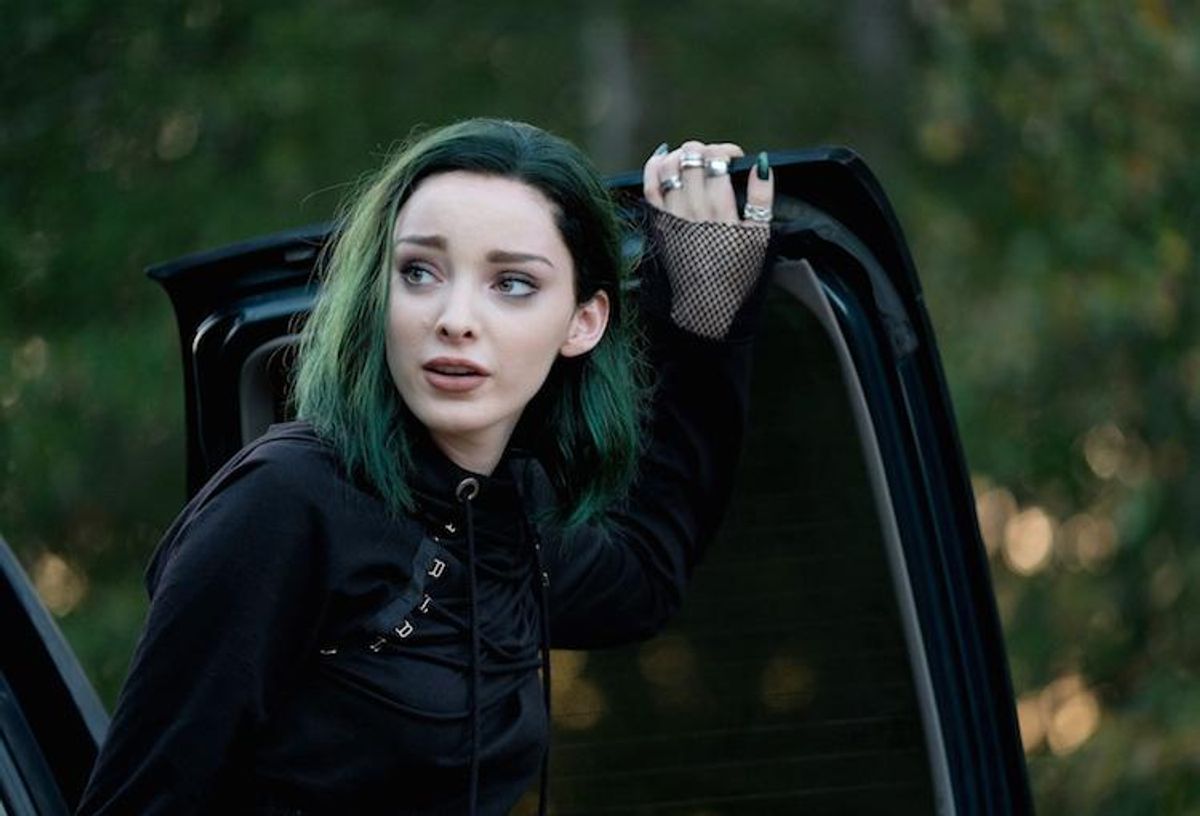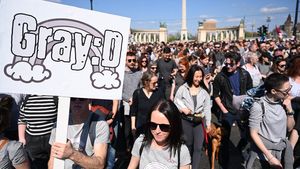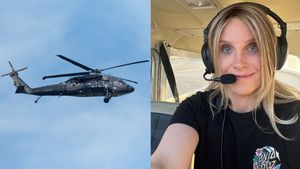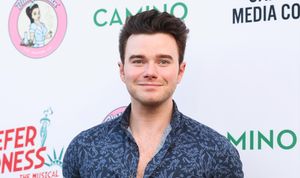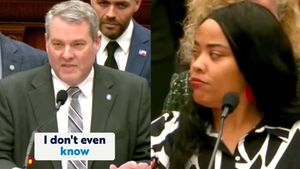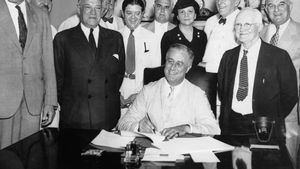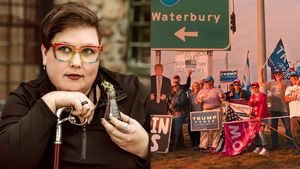In its first season, The Gifted, Fox's latest addition to the X-Men's TV and film cannon, introduced us to a lot of mutants. There were, of course, mutant heroes and villains, but there were also mutant refugees and mutant fugitives. There were mutants from privileged backgrounds, angsty mutant teens, mutants who chose to hide their powers, mutants dealing with mental health issues; mutants who could easily pass as human and mutants who couldn't. The show's diverse cast gave us mutant characters of various races and ethnicities. What it didn't give us is any LGBTQ characters--mutant or human.
Related | The Gifted Actor Sean Teale is TV's Hottest Newcomer
Of course, Marvel's mutants have been interpreted as stand-ins for the LGBTQ community for decades. Both are persecuted on the basis of something fundamental about who they are, something largely out of their control, and both often feel the need to hide who they are to avoid discrimination.
But in 2018, the fact that you can compare these characters' struggles to those of queer people shouldn't be an excuse not to include actual gay and lesbian characters in these stories. It's time for The Gifted--and the X-Men films in general--to stop using mutants as an allegory for LGBTQ folks and start including actual, queer characters.
Since their very first comic book appearance, the X-Men, characters born with superhuman abilities that provoke fear and hatred in ordinary humans, were interpreted as an allegory for marginalized groups. Stan Lee and Jack Kirby's stories of discrimination against mutants in the early 1960s reflected the ethos of the Civil Rights movement. Professor Xavier, the team's non-violent leader, and his primary antagonist, the militant mutant separatist Magneto, have been compared to Martin Luther King Jr. and Malcolm X respectively.
Gradually that interpretation evolved to include gay, lesbian, bisexual and trans people, most notably in 2003's X2: X-Men United. The point was driven home in a particularly poignant scene in which Bobby Drake (a.k.a. Iceman) comes out to his parents as a mutant, leading his mother to ask if he'd tried...to not be a mutant. It was a scenario that any queer person who has ever been asked how they know they're queer if they've never tried sleeping with someone of the "opposite" sex, or has been told that their sexuality is "just a phase" recognized immediately. At the time, for a scene like that to appear in a big-budget superhero movie felt revolutionary.
Over a decade later, though, Iceman has come out as gay in the comics, joining the ranks of LGBTQ characters saving the world, falling in love, and doing all the things people do in comics, on TV, in books and movies. Gay characters, like gay people, are everywhere--and have been for decades. So it seems to me that the mutant metaphor has more-or-less outlived its usefulness. Continuing to rely on it is at best lazy, at worst cowardly and homophobic.
Related | How X-Men Taught This NYC Firefighter to Embrace Her Transness
It was one thing to let readers interpret mutants as stand-ins for gays and lesbians at a time when you couldn't get away with depicting LGBTQ characters in pop culture. Generations of queers were accustomed to having to imagine themselves into narratives that on the surface ignored and excluded them, looking for subtle references and signifiers that they could interpret as vaguely queer. But with so many out and proud--and conflicted and complicated and joyful and ordinary--LGBTQ characters in the comics now, and in pop culture generally, there's simply no excuse for the X-Men's TV and film adaptations to omit them so completely.
Now, I'm not going to pretend to know anything about the byzantine processes and negotiations that goes into selecting which characters from the comics appear in the various TV and film iterations of the X-Men mythos. Presumably, certain heroes are off limits, reserved for the big budget blockbusters. But it seems odd that of the many second and third-tier mutants depicted in The Gifted, not one of those canonically queer mutants has made even a cameo appearance on the series.
"The story is really about the people who have been left behind--the mutants who've been left behind," creator Matt Nix told me last fall before the show's premiere. "The idea was to bring in these mutants who have interesting or compelling relationships to the X-Men. We want to give ourselves something to explore, something to mine, someplace to go."
Related | X-Men's Iceman Is Getting Some Love in Gay Romeo & Juliet Plotline
In the world of The Gifted, the core X-Men team, as well as Magneto's Brotherhood, has disappeared. So that--not to mention their prominent roles in the film franchise--takes characters like Iceman and the pansexual Mystique out of the running. It's possible that fan favorite couple Shatterstar and Rictor are being reserved for the still in development X-Force movie. But there are plenty of other queer mutant characters in the comics with as much name recognition as Blink (Jamie Chung), Dreamer (Elena Satine), or the Stepford Cuckoos (Skyler Samuels). Northstar, one of the first openly gay superheroes to appear in mainstream comics, would make an excellent addition to the Mutant Underground team, while more recent teen characters like Benjamin Deeds (Morph), Nathaniel Carter (Hindsight) and Victor Borkowski (Anole) would make great supporting characters for the Strucker kids (Natalie Alyn Lind, Percy Hynes White) to interact with.

Image courtesy of FOX
The point is that there's no shortage of lesbian, gay or bisexual characters for Nix and co. to choose from. Fox recently renewed The Gifted for a second season, which will presumably introduced more mutant's to the show's vast mosaic. In its first 13-episode arch, The Gifted hasn't attempt anything as ambitious or experimental as Legion's surrealist take on the world of the X-Men.
Instead, it's concerned with telling a perfectly serviceable sci-fi action story grounded, like the very first X-Men film, in a plausible reality--no capes or costumes to distract us from imagining what life might actually be like for persecuted superhumans in a quasi-contemporary, quotidian world. And as ever, the mutants and their particular circumstances mirror real life issues. The characters are refugees and immigrants, people on the run, no longer welcome in the country they've called home their whole lives.
Those seem like the appropriately timely parallels for an X-Men show to make in 2018. But for those parallels to work, Nix and co. need to commit to the recognizable world into which they've inserted mutant heroes and villains. And that reality needs to include LGBTQ characters.
Follow John Russell on Twitter and Instagram for more hot takes on LGBTQ mutants.
